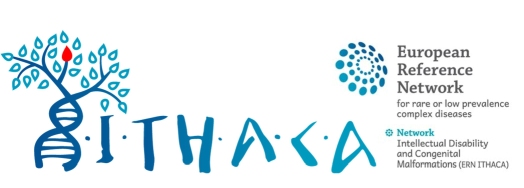Search for intellectual disability-related genes (Available only in english)
Predefined groups
- ORPHA:183757 - Rare genetic intellectual disability
- ORPHA:101685 - Rare non-syndromic intellectual disability
- ORPHA:183763 - Rare genetic syndromic intellectual disability
- ORPHA:611327 - Rare genetic syndromic intellectual disability with multiple congenital anomalies/dysmorphic syndrome
- ORPHA:611314 - Rare genetic syndromic intellectual disability without multiple congenital anomalies/dysmorphic syndrome
Additional columns
Help
Procedures: Orphanet inventory of genes related to rare diseases
To better describe rare intellectual disability disorders of genetic origin, Orphanet provides information on every gene related to a rare intellectual disability disorder. The gene-disease relationship is provided. The list of intellectual disability-related genes was curated in partnership with ERN-ITHACA and SysID.
This information includes the genetic international nomenclature, the gene typology (gene with protein product, locus, non-coding RNA), the chromosomal location, the cross-mappings with international genetic databases.
By default, all intellectual disability gene-disease relationships are displayed in the table above. You can filter results by gene symbol/name, disease name, ORPHACode or gene/disease MIM number (Online Mendelian Inheritance in Man) or select a predefined group (Rare non-syndromic intellectual disability, Rare genetic syndromic intellectual disability, Rare genetic syndromic intellectual disability with multiple congenital anomalies/dysmorphic syndrome or Rare genetic syndromic intellectual disability without multiple congenital anomalies/dysmorphic syndrome).
Warning
The provided information is based on published scientific articles, surveys of expert websites and expert advice. Candidate genes and biomarkers are excluded from the inventory unless a clinical test is made available in one of the Orphanet consortiums countries. Information in Orphanet is updated on a regular basis. It may happen that new discoveries are made in between updates and do not yet appear. Professionals are always encouraged to consult the most recent publications before making any decisions based on the information provided.
Information in Orphanet is not intended to replace professional health care. Orphanet cannot be held responsible for harmful, truncated or erroneous use of any information found in the Orphanet database.


